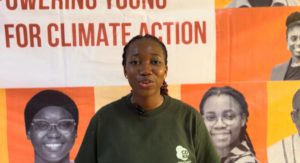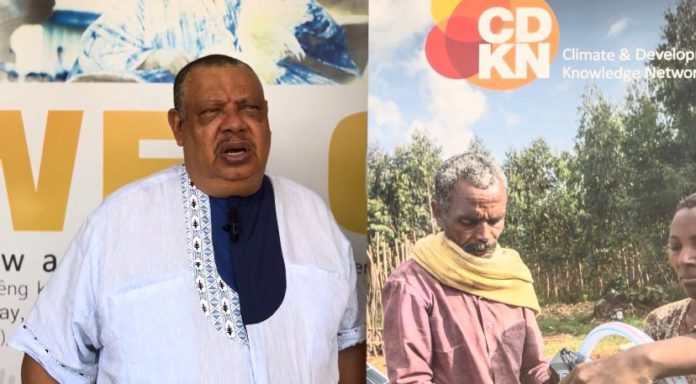Climate change continues to leave devastating imprints in the world with consequential threats on human existence and the ecosystem.
But an Environmental Scientist and Country Advisor for Climate and Development Knowledge Network (CDKN) Ghana says the impacts of the changing climate present an avenue for the youth to proffer effective solutions to respond to the menace.
Professor Chris Gordon believes it will afford people the opportunity for job creation and employment with potential benefits to the economy.
He disclosed this during a capacity building training programme organized by CDKN Ghana for young climate activists and ecopreneurs in Accra.
He noted that CDKN is committed to showing the youth that there is a future in addressing climate change at the local, national, and global levels.
This strategy is achieved by empowering more young people within the space to be more practical in addressing the menace than following rhetorics.
“This goal is achieved by equipping young individuals with practical skills to tackle climate change issues in their communities, rather than just theoretical knowledge,” said Prof. Gordon.

The 5-week training program brought together participants from various backgrounds to acquire relevant skills and design solutions to address climate change issues in their communities.
Country Manager for CDKN Ghana, Dr. Prince Minkah, explained that the program aimed to provide leadership training, mentorship, and advocacy skills to young climate-conscious individuals, enabling them to become champions for vulnerable groups in their communities.
Participants, including Gabriel Domoninge, an engineering student, and Ernest Mensah, an ecopreneur, expressed enthusiasm for the training, which they believe would enhance their approaches to addressing climate change.
Podcast hosts, Genevive and Diana T appreciated the opportunity to network with like-minded individuals as they gained deeper understanding of climate change relating to lifestyle and health.
A facilitator, Richard Marty of the Alliance for Empowering Rural Communities, praised the experience of mentoring trainees and learning from their innovative solutions.
He urged stakeholders, especially civil society organizations, to create more platforms for empowering young people and marginalized groups to adapt to the climate crisis, emphasizing the importance of resilience building and representation in policy engagement processes.

